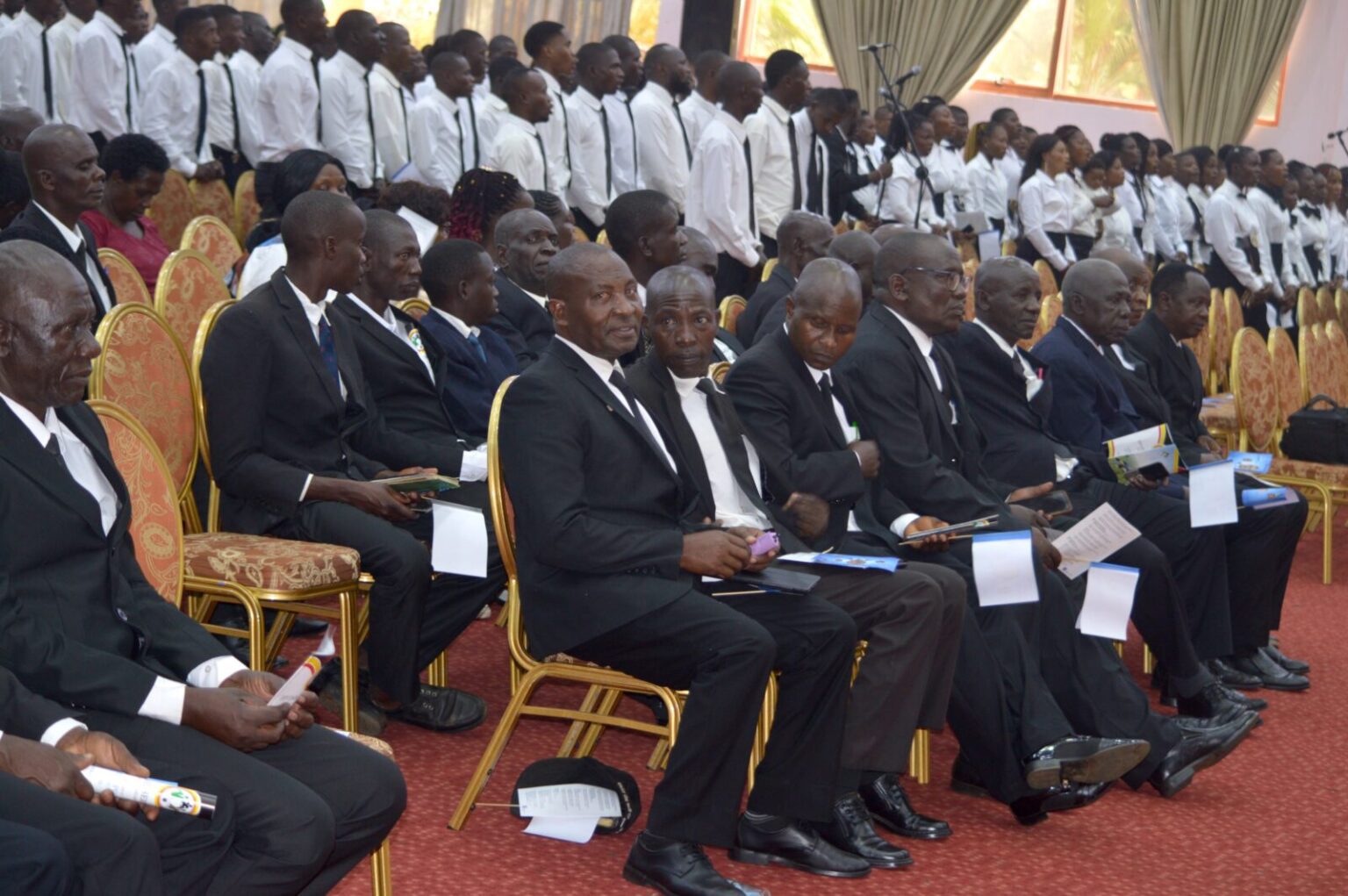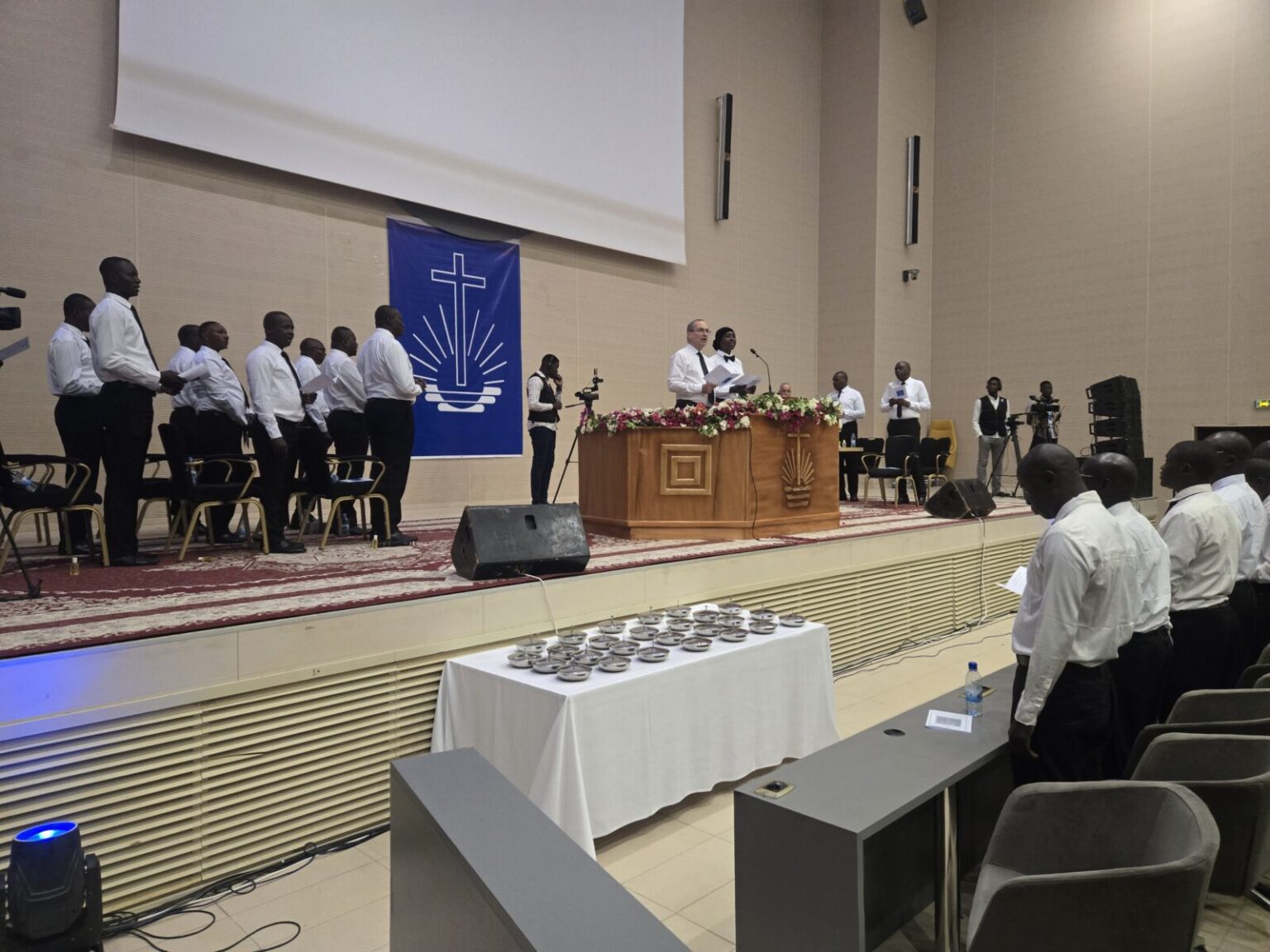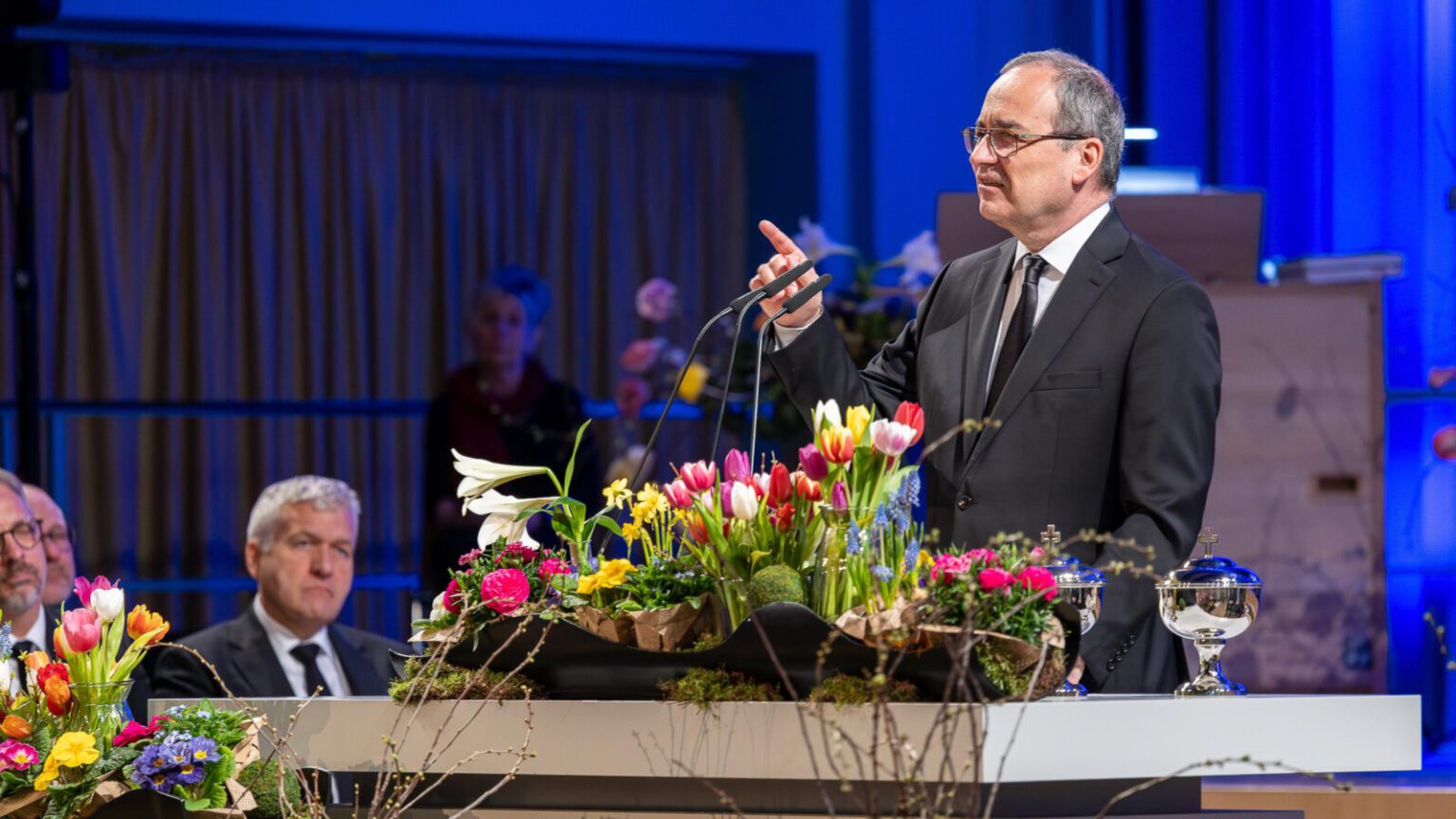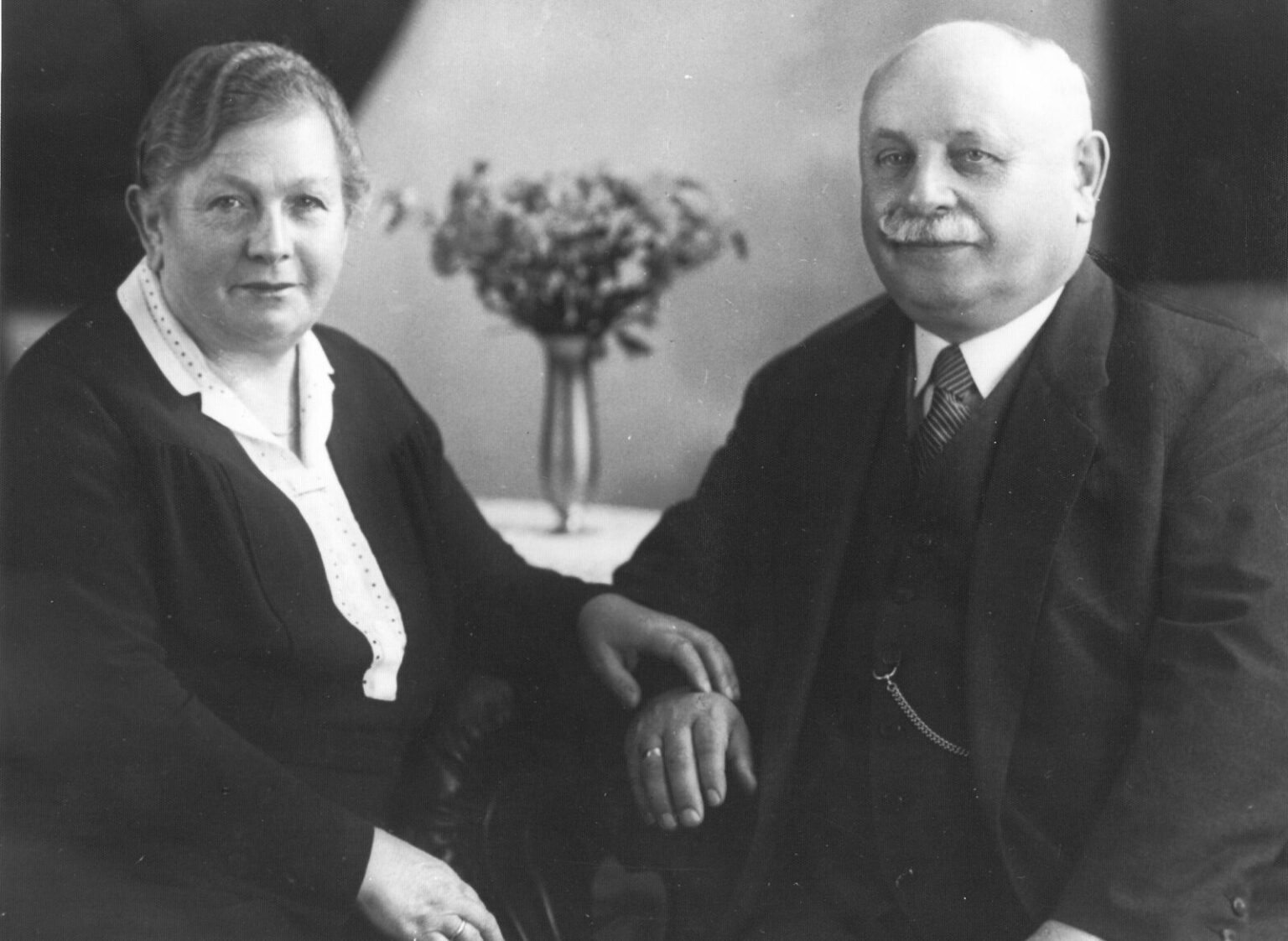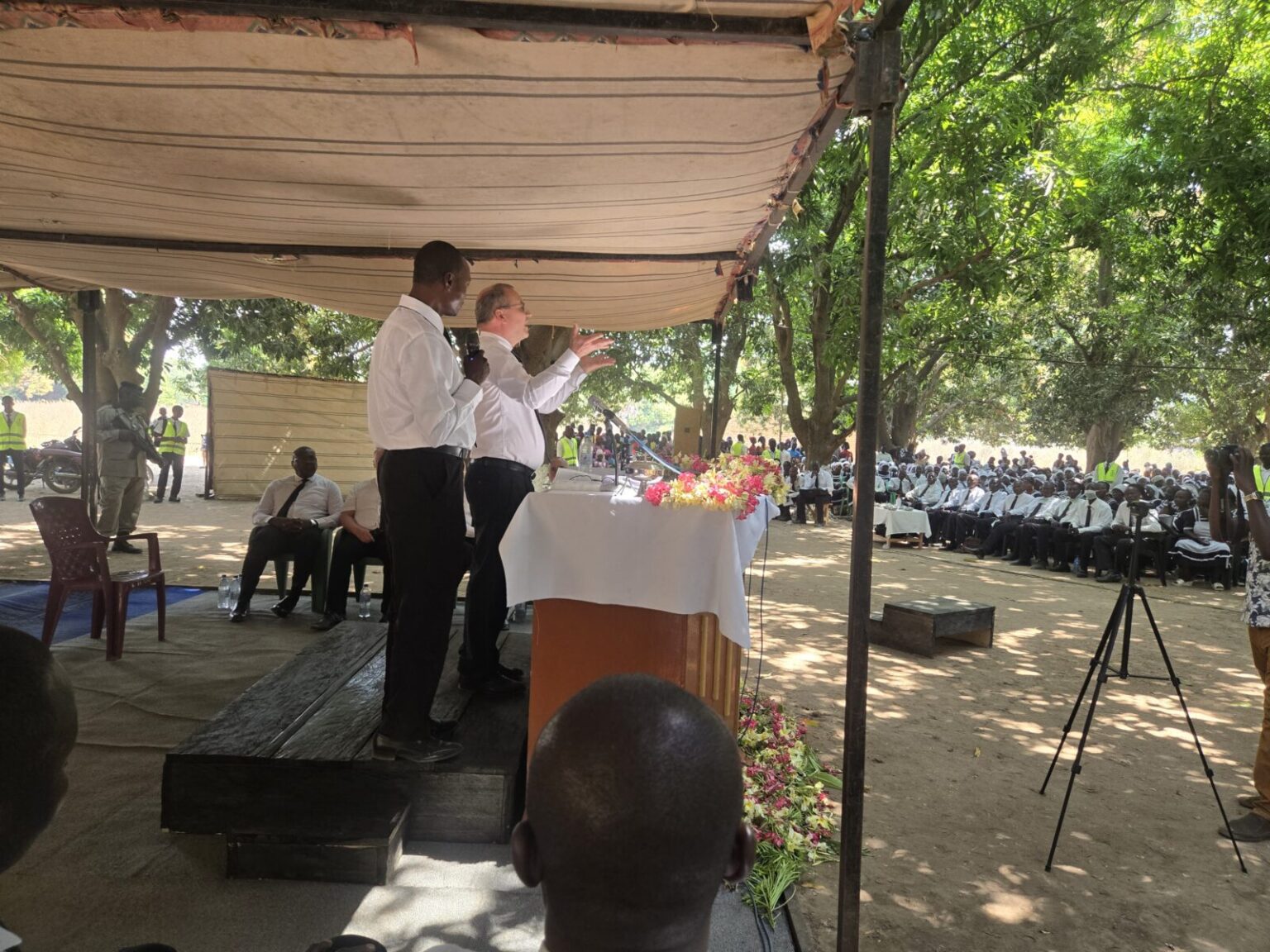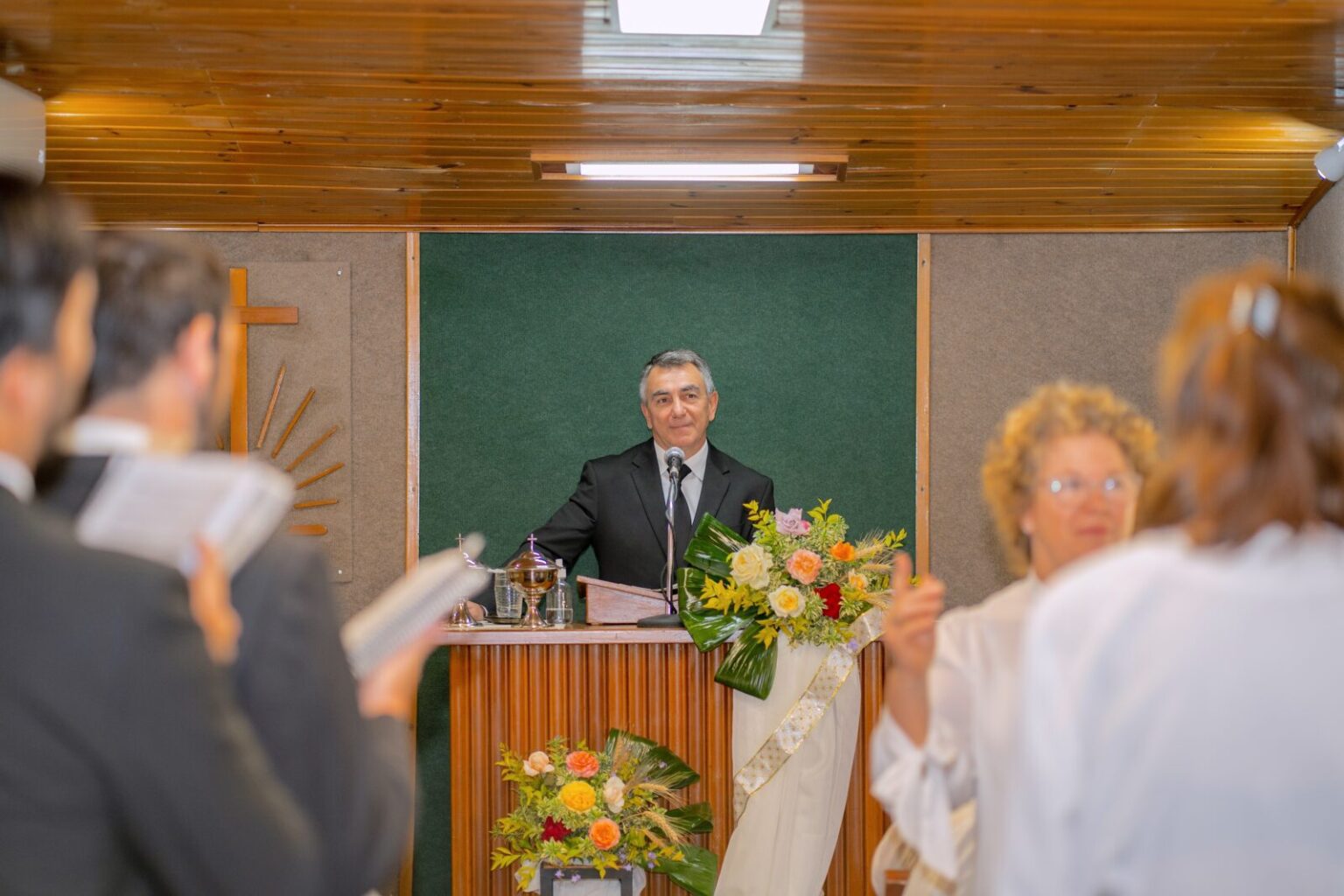

Karl the Great is what many called him affectionately: today, 25 years to the day, one of the most influential District Apostles passed away. He did not only leave the New Apostolic Church with a historic self-image, but also with a few cultural peculiarities.
The break with his father was the biggest trauma in Karl Weinmann’s biography. He was born in Eberbach near Heidelberg (Germany) in 1901 and was baptised in the Protestant church. His childhood was sheltered. After his confirmation he had no interest in things religious. He went to Hamburg as a commercial apprentice and later returned to his hometown, where he established a forwarding company. His head was full of business and he had no time for such useless stuff, he himself wrote.
The end of a search and beginning of banishment
“Even though I earned well and could afford everything, there was an emptiness,” Karl Weinmann writes in his memoirs. This changed, however, in 1925 when he came into contact with the New Apostolic Church. “I felt like Ulysses must have felt after returning home from his odyssey abroad.”
This was the beginning of a crisis in his parental home. “My father was furious at my ‘apostasy’. He refused to have anything to do with me any more.” His father even went so far as to try and mobilise others against him and his “apostle sect” by going public with newspaper ads.
Banished from his parental home, Karl and his wife, Henriette Sophie—who was sealed on Pentecost 1926—moved to Hamburg for good. Although they had to struggle to make ends meet, they were full of enthusiasm for their faith and engaged themselves.
In 1928 Karl Weinmann received his first ministry in the Church, that of a Sub-deacon. Additional ministries followed, and in 1938 he was ordained as a District Elder, at which time he started to work for the Church full-time. The Apostle ministry followed, and three years later, in 1949, he was ordained as a District Apostle. His work had a lasting effect.
Rebuilding process
Many in the New Apostolic Church have done, and still do, groundwork under adverse circumstances. It was no different with District Apostle Weinmann. But he went about things in his very own unique way. In order to be able to pay for the rebuilding of churches after World War Two, he started a building campaign. To raise money, he had a large number of photos of the Chief Apostle made, which the youth then sold to the members in the congregations.
This was only the beginning of a much more effective campaign still to come: “Non-smoking campaign”. In a circular, he called on the youth—but also the other members and particularly the ministers—to smoke less and donate the money they would save to the Church’s rebuilding programme. “While I am writing these lines, I have just put out my last cigarette in the ashtray.”
Whether it was this campaign that contributed to smoking being practically outlawed—even decades later—in New Apostolic circles in Hamburg and beyond cannot be said for sure. What we do know is that District Apostle Weinmann never wanted to dictate anything: “Nothing is forbidden to a New Apostolic Christian. Let me say this right from the start,” he already wrote in his circular at the time.
An anecdote speaks to the point. The scene is a restaurant at a railway station. “Don’t you smoke any more, District Elder?” he was asked.
“I do. But you see…I left my cigarettes at home.”
“Waiter, could you please bring the gentleman a packet of cigarettes.”
The sources from a historical point of view
The influence of District Apostle Weinmann for the historiography of the New Apostolic Church is undisputed. In 1963 he published the book 100 Jahre Neuapostolische Kirche – Apostelbezirk Hamburg (100 years New Apostolic Church – Apostle District Hamburg) together with District Evangelist Günter Knobloch, who later became District Apostle. The book sheds light on the schisms of 1863 and 1878. True to the records, it still serves as a reference work today.
In addition to this, He also published other works which, however, do not meet today’s requirements in terms of listing sources and references. However, it is precisely this source collection that deserves credit. It ranges from the Catholic-Apostolic Notes of Conferences and the Minutes of Conferences from Great Britain to material from the Apostolic Church of Queensland in Australia and the Hersteld Apostolische Zendingkerk in the Netherlands.
With his penchant for history and writing, District Apostle Weinmann laid the foundation for the working group History of the New Apostolic Church, which was created in 1999. Its founder chairman, Apostle Walter Drave, had published the biography Leben und Wirken des Apostels Karl Weinmann (Life and work of Apostle Karl Weinmann) nine years before. In the preface there is a personal quotation by Apostle Weinmann: “Everything I have experienced was, is, and, continues to be grace.”





